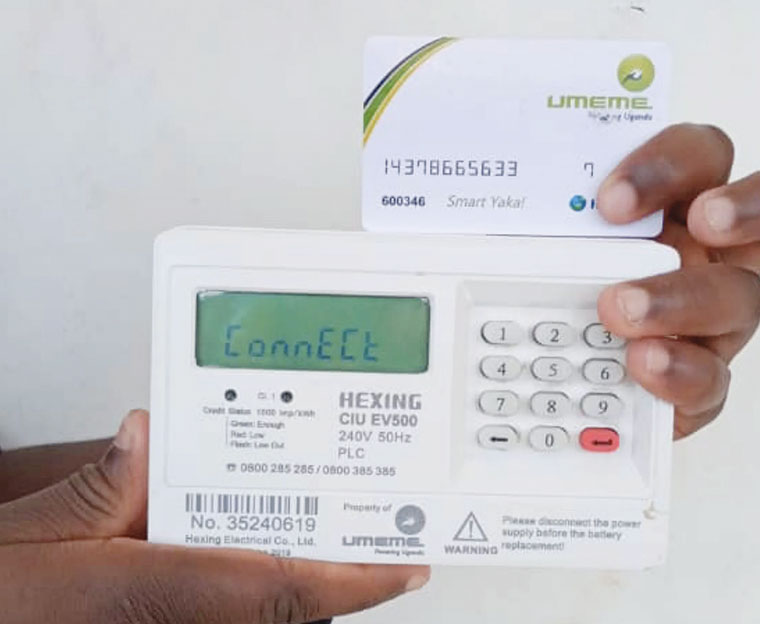
The murmurs and whispered side conversations did little to soften the tension inside Parliament’s committee room last week.
Lawmakers leaned over thick folders, their faces set in disbelief. Across the table sat energy officials, shuffling notes and waiting for questions they knew were coming. At the heart of the uproar was a $118 million government payout to Umeme Limited, Uganda’s former largest private electricity distributor.
The money was meant to mark the end of a 20-year public–private partnership, a buyout intended to settle Umeme’s unrecovered investments and return the power distribution network to state hands.
Instead, it has unleashed one of the most heated political and financial controversies in Uganda’s recent history. What was meant to be a clean exit has turned into a messy reckoning.
Lawmakers now warn that the deal could leave the government paying twice, once to Umeme for its buyout, and again to settle debts the company allegedly owes to the Uganda Electricity Transmission Company Limited (UETCL).
The controversy began quietly enough. In March 2025, the Ugandan government paid Umeme $118 million (UGX 428.9 billion) to settle what it called “unrecovered network investments.”
The payment marked the official end of Umeme’s concession, signed two decades ago to modernize and manage the country’s electricity distribution. Under the deal, the Uganda Electricity Distribution Company Limited (UEDCL), on behalf of the government, was to compensate Umeme for investments made but not yet recouped.
The plan had parliamentary approval to borrow up to $190 million for the buyout. But a special audit by the Office of the Auditor General (OAG) slashed that figure by nearly 40 per cent after finding inconsistencies in Umeme’s financial claims.
Even so, the transaction went ahead, despite an uncomfortable reality: Umeme itself allegedly owed hundreds of billions of shillings to the Uganda Electricity Transmission Company Limited (UETCL) for unpaid power purchases.
By March, UETCL claimed Umeme’s debt stood at Shs 542.8 billion. Umeme’s own records showed less than half that amount, Shs 269.3 billion. Now, with both sides locked in a legal fight in London’s Court of Arbitration, questions about Uganda’s energy governance are multiplying.
‘WHY PAY BEFORE CLEARING THE DEBT?’
The mood inside Parliament’s Committee on Environment and Natural Resources turned openly skeptical last week. Members demanded answers from the Ministry of Energy and Umeme, accusing the government of failing to safeguard public resources.
“Why didn’t we demand that Umeme clear its obligations before receiving the buyout?” asked Committee Chairperson Herbert Ariko (Soroti East).
“The buyout should have been contingent on Umeme clearing or escrowing its debt. This indicts us as Parliament.”
His colleague David Karubanga (Kigorobya County) was equally blunt: “We may have ceded our oversight mandate. The public is left to grapple with a privatization model that seems to protect private interests over national priorities.”
The government, however, insists its hands were tied. Permanent Secretary Eng. Pauline Irene Bateebe told MPs that the buyout payment was a contractual obligation.
“The buyout was a condition for asset transfer,” she said. “Without payment, Umeme would not have relinquished the assets, which could have risked power disruptions.”
But that explanation has done little to calm critics, who see it as a case of the government paying off a private company before addressing what it owes its own. For its part, Umeme maintains that its debt to UETCL should be resolved in tandem with the buyout, something the government rejects.
Umeme’s Managing Director, Selestino Babungi, says the company has gone to international arbitration to claim $292 million, including interest of up to 20 per cent annually.
That arbitration, analysts warn, could deepen the country’s fiscal burden if Uganda loses. What’s emerging, experts say, is a portrait of a deeply flawed concession framework. Fragmented contracts between Umeme, UETCL, and UEDCL created loopholes that allowed financial disputes to fester.
The arrangement, critics argue, let Umeme benefit from government protection without being held to the same standards of accountability.
“We’re seeing the dangers of privatization without strong oversight,” said one energy policy analyst familiar with the contracts.
“When you have three entities with overlapping responsibilities and no clear enforcement mechanism, the taxpayer always loses.”
Even Sidronius Opolot Okaasai, the Minister of State for Energy, admits the system was far from perfect.
“They have run their term, which ended on March 31 this year,” he said. “Mind you, Umeme had taken the cream, Kampala, major cities, and towns, while UEDCL was left with economically less viable areas.” He compared the concession to a “20-year marriage” that had simply run its course.
BEYOND THE BOARDROOM: THE HUMAN COST
For ordinary Ugandans, these high-level disputes translate into something immediate: unreliable electricity and higher bills.
Despite billions invested over two decades, power outages remain common, and tariffs continue to climb. As the government celebrates “taking back control” of the electricity grid, consumers are asking whether anything will truly change.
Will tariffs fall? Will power become more stable? Or will taxpayers foot the bill for another round of expensive arbitration? The timing is politically sensitive.
With the 2026 elections approaching, any scandal tied to corruption or mismanagement in the energy sector risks eroding public trust in a government already grappling with economic discontent.
Parliament has now summoned Umeme, UETCL, and the Ministry of Energy to explain the inconsistencies in their accounts and defend their decisions. But even as investigations continue, one fact seems clear: Uganda’s attempt to unwind its most significant privatization deal has exposed deep cracks in its governance structure.
If the government loses in arbitration, taxpayers could end up paying not only the $118 million buyout but also tens of millions more in damages, while UETCL, the state’s power transmitter, struggles under mounting debt.
For a country once hailed for liberalizing its power sector, the Umeme saga now stands as a cautionary tale. It’s a reminder that privatization without accountability doesn’t just dim the lights, it can plunge an entire system into darkness.



